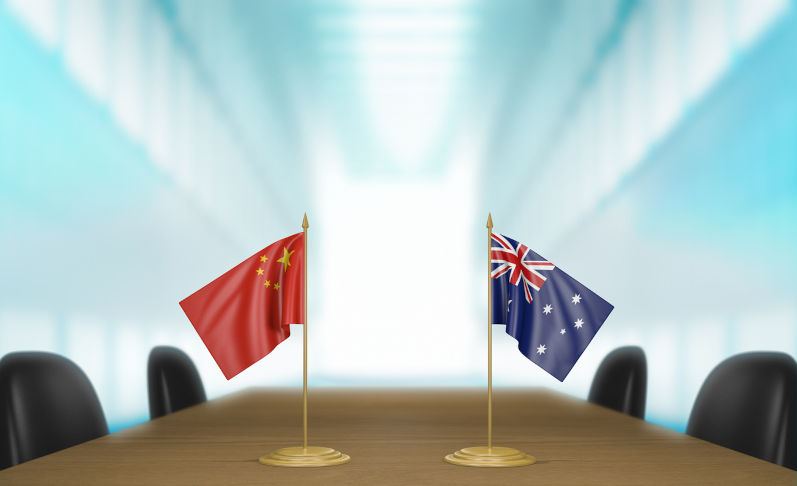Australia should forge closer relations with China
August 2, 2023
Under the Labor party governments of Kevin Rudd and Julia Gillard between 2007 and 2013, Australia succeeded in anchoring its relations with China on mutually beneficial grounds.
While reaping the economic upsides of the peaceful rise of China, Australia also hedged against a situation where an emergent China might mean political domination in the region, which could be perceived as detrimental to Australia’s national interests. This strategy could be termed “accommodation with soft balancing”.
But Sino-Australian relations have undergone an unfortunate metamorphosis in recent years. The formation in 2021 of AUKUS the security partnership of Australia, the United Kingdom and the United States means Canberra is leaning toward the US. In lockstep with US geopolitical priorities, Australia will no longer be able to maximise its national interests by balancing Beijing’s and Washington’s strategic concerns in the region.
However, a hard containment policy against China does not serve the interests of Australia in the long term.
The thorniest of the geopolitical issues arising from the formation of the AUKUS pact is the strong message that Australia will see the world through the US’ strategic eyes. Under US leadership, the alliance is aimed at sustaining and enhancing deterrence against the perceived “Chinese threat” in the region.
In addition to the AUKUS nuclear-powered submarine agreement, the pact also features broader security cooperation measures, including an agreement for Australia to explore hosting US bombers on its territory, the acquisition by Australia of long-range precision-strike missiles, and joint cooperation on cyber capabilities, artificial intelligence, quantum technology and additional underseas capabilities.
Last year, Australian Foreign Minister Penny Wong emphasised the importance of maintaining a regional order based on strategic equilibrium. However, the present generation of Labor leadership still retains faith in the idea of a US-led global order. Paul Keating, Australia’s prime minister from 1991-96, has been critical of the nuclear submarine program. Under Keating, there were attempts to integrate Australia more strongly with the Asia-Pacific region.
Having no room for retreat from the challenges posed by the provocative nuclear submarine agreement, China criticised the agreement as potentially fuelling an arms race and hurting peace and stability in the region. Like China, Indonesia is also highly suspicious of the program.
Meanwhile, the US, Japan, Australia and India have transformed the Quadrilateral Security Dialogue from an informal framework of cooperation to a formal regional organisation. If the QUAD is further institutionalised, militarised and expanded, an Asian NATO with China as its targeted adversary might be on the horizon in the prospective security architecture of the Indo-Pacific. This would further destabilise the region.
What is clear is that Australia’s membership in the QUAD and AUKUS has strengthened the contention that Australia is not only committed to but also effectively operating a US-led “collective deterrence” mechanism against the so-called “China threat” in the region.
However, a cost-and-benefit analysis argues in favour of a less active role played by Australia in the “collective deterrence” mechanism. In addition, question marks still surround Canberra’s willingness and determination to become a military stronghold in any potential future conflict between China and the US in the region.
It bears mentioning that other disputes are endemic to Sino-Australian relations. These are the new security agreement between Japan and Australia, the blocking of Australian exports to China after Canberra sought a “formal investigation” into the origins of the COVID-19 pandemic, and Australia’s unwillingness to support China’s bid to join the Comprehensive and Progressive Agreement for Trans-Pacific Partnership. In spite of these disputes, the bilateral relations are improving.
In fact, both countries have started to resolve the puzzles through negotiation, rather than in a politicised manner. Recently, Mark McGowan, premier of the state of Western Australia, led a business delegation to China to take part in a strategic dialogue with Chinese business delegates. It is hoped that further steps will be taken by both countries to rebuild their mutually beneficial relationship.
Seen from the perspective of ordinary Australians, the most important thing is economic development. Instead of adopting a hard containment policy toward China, Australia should forge closer economic ties with the nation. As a defender of key global institutions like the World Trade Organisation and the World Health Organisation, China is definitely not a threat to the global order.
There is no merit for Australia in sacrificing its own economic development by subordinating its national interests to those of the US. The pragmatic approach of the Association of Southeast Asian Nations in managing geopolitical competition between China and the US offers lesson for Australia. Similarly, Jacinda Ardern, the former prime minister of New Zealand, set an excellent example for that nation’s like-minded neighbour to follow. Under Ardern, New Zealand succeeded in building constructive and important relations with both China and the US.
First published in the China Daily July 31, 2023
